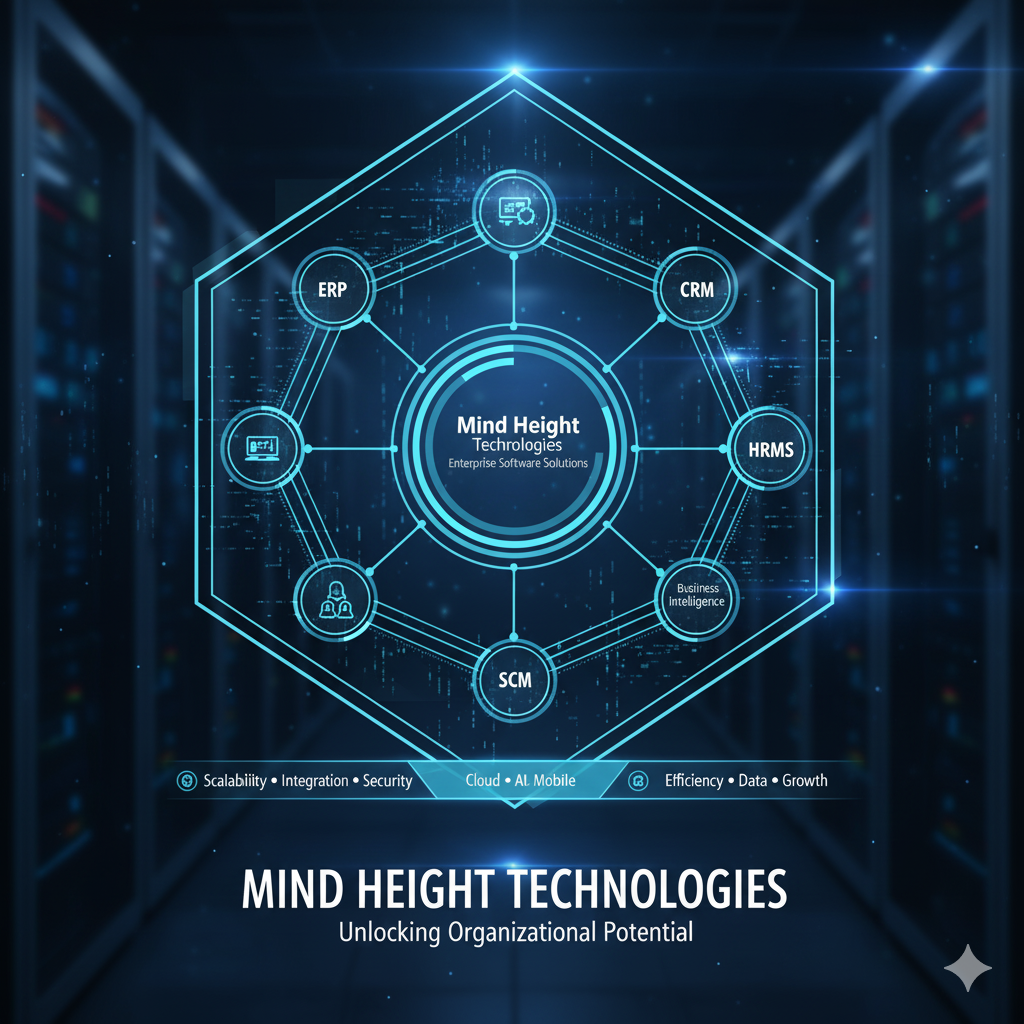
Unlocking Organizational Potential with Enterprise Software Solutions
At Mind Height Technologies, we understand that robust, scalable enterprise software is the bedrock of organizational success.
We provide large-scale application suites meticulously engineered to address the needs of your entire organization, enhancing productivity, operational efficiency, and streamlining critical business processes.
Our solutions are built to evolve with your business, ensuring sustained growth and a competitive advantage.
Key Pillars of Our Enterprise Software:
Our offerings are built upon foundational principles to ensure maximum utility and reliability:
- Scalability & Integration: Our solutions handle high volumes of data and seamlessly integrate with your existing systems (CRM, ERP, SCM), creating a unified digital ecosystem.
- Security & Customization: We prioritize data security with advanced protocols and offer highly customizable solutions tailored to your unique workflows and strategic objectives.
- Comprehensive Support: We provide robust ongoing support and timely updates, ensuring your software remains functional and optimized for peak performance.
Transformative Software Solutions We Provide:
Mind Height Technologies specializes in deploying and optimizing a diverse portfolio of critical enterprise software:
- Enterprise Resource Planning (ERP): We integrate core business functions like finance, HR, and supply chain into a single system.
- Customer Relationship Management (CRM): Our CRM platforms help you manage customer interactions and streamline sales and marketing.
- Supply Chain Management (SCM): Optimize the flow of goods and information to enhance efficiency and reduce overhead.
- Business Intelligence (BI): Unlock actionable insights from your data, empowering your leadership to make informed, data-driven decisions.
Benefits of Partnering with Mind Height:
Implementing our enterprise software delivers significant advantages:
- Improved Efficiency & Collaboration: Automate tasks and foster seamless communication across departments.
- Centralized Data: Consolidate data into a single source of truth for consistent and reliable information.
- Cost Savings: Reduce operational costs through automation and improved resource management.
Future-Proofing Your Business:
We are at the forefront of enterprise software trends:
- Cloud-Native Solutions: We provide the scalability and flexibility of cloud computing.
- AI Integration: Our solutions use AI to enhance data analysis and automation.
- Mobile Accessibility: We ensure software is accessible via mobile devices, supporting a modern, mobile workforce.
Enterprise software is not just a tool; it’s a strategic investment. Mind Height Technologies is your expert partner, providing the cutting-edge solutions and industry knowledge necessary to navigate its complexities and ensure your organization thrives.


